Publications
Australian Self-Care Alliance Publications
The following publications were published by the Alliance since incorporation.
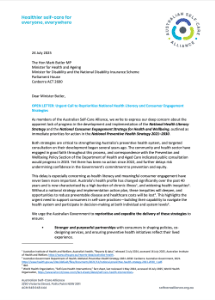
Open letter: Urgent call to reprioritise national health literacy and consumer engagement strategies
The Australian Self-Care Alliance has issued an open letter to the Hon Mark Butler MP, Minister for Health and Aged Care, calling for urgent action on two critical national strategies to strengthen Australia’s preventive health system.
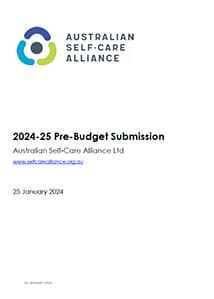
2024-25 Pre-Budget Submission
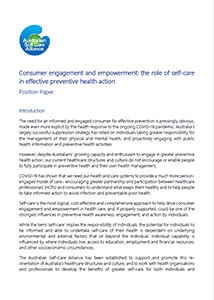
Consumer engagement and empowerment: the role of self-care in effective preventive health action
Mitchell Institute of Health Publications
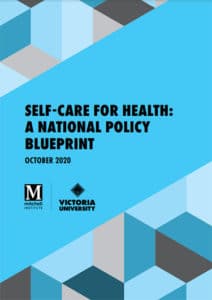
Self-care for Health: A national policy blueprint
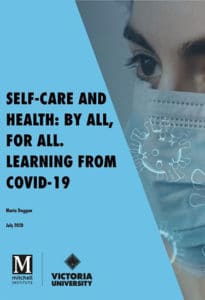
Self-Care and Health: By all, for all. Learning from Covid-19
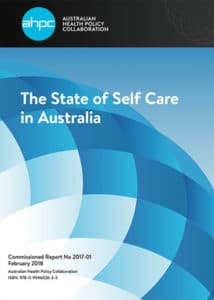
The State of Self-Care in Australia
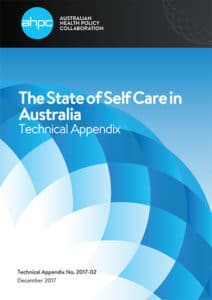
The State of Self-Care in Australia - Technical Appendix
Partner Publications
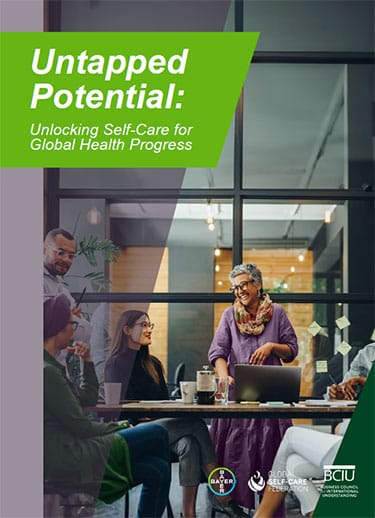
Untapped Potential: Unlocking Self-Care for Global Health Progress
Bayer, the Global Self-Care Federation (GSCF), and the Business Council for International Understanding (BCIU)
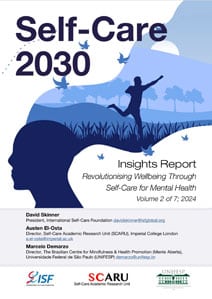
Self-Care 2030
International Self-Care Foundation
The Seven Pillars of Self-Care are fundamental to ensuring the maintenance of health and allowing individuals to manage many of their own conditions. Each year, on the path to Self-Care for all by 2030, ISF emphasises a different pillar. In 2024 the second pillar is recognised, and this report is intended to raise awareness about how self-care can help people manage their mental health.
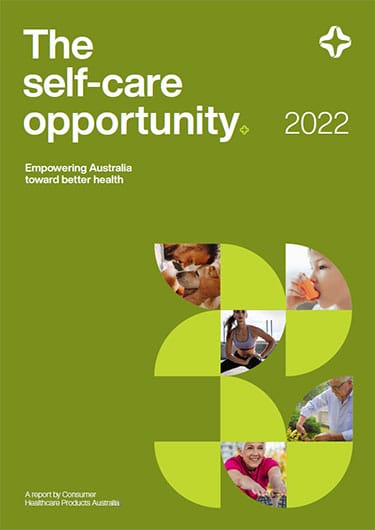
The Self-Care Opportunity
Consumer Healthcare Products Australia
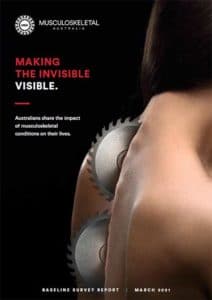
Making the Invisible Visible
Musculoskeletal Australia
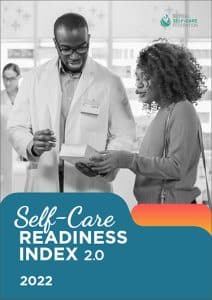
Self-Care Readiness Index
Global Self-Care Federation
The Global Self-Care Federation is a federation of regional and national associations, and manufacturers and distributors of non-prescription medicines on all continents. CHP Australia is the local member of GSCF. The Federation is dedicated to a world where self-care increasingly contributes to better health and more sustainable healthcare systems.
The main aim of the Self-Care Readiness Index is to assist GSCF members to engage with jurisdictions and policy makers at regional and national levels about the importance of adopting self-care in national health policies. The survey was conducted in ten countries: United States, Brazil, United Kingdom, France, Poland, Egypt, Nigeria, South Africa, China and Thailand. This latest version includes all 20 countries – 10 from the first phase which is the report on the website and the 10 countries examined in phase 2 (which includes Australia) .
